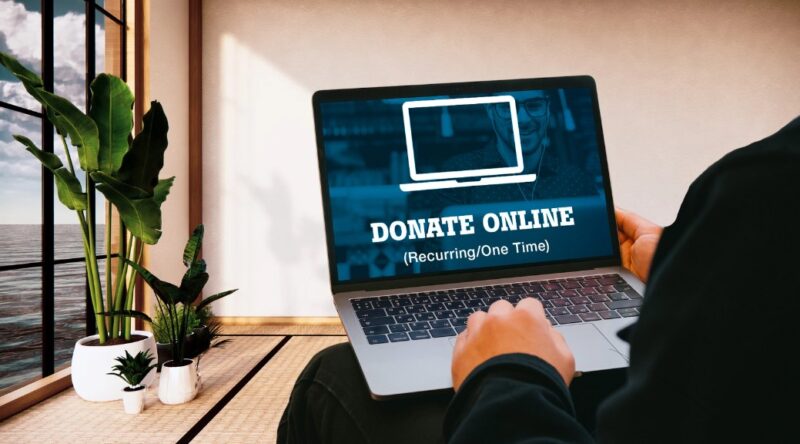The act of giving—whether it’s time, resources, or money—has always been embedded in the human spirit. Over time, with the rise of philanthropic initiatives and charitable organizations, this act has taken on various forms. One dichotomy that has intrigued many is the choice between making public or anonymous donations.
Both choices have their reasons, both ethical and strategic. In this article, we’ll discuss the factors that influence these decisions and what they reveal about the motivations and objectives of the donor.
Public Donations: A Statement to the World

Making a donation publicly is not just about the act of giving—it’s also a declaration, a message. It sends ripples across communities, inspires others, and sometimes even serves a specific purpose for the donor.
Visibility and Inspiration
Every public act of kindness has the potential to inspire others. When one person witnesses a generous deed, they are more likely to reciprocate in their own way.
Donors often hope that their public contributions will create a domino effect, leading to more awareness and greater overall support for a cause.
Recognition
Public donations often come with a level of recognition. Whether it’s having one’s name on a building, being featured in a press release, or receiving an award, this recognition can be deeply gratifying.
Inspiration to Others
Beyond personal recognition, public donations can inspire others to give. When someone sees a well-known individual or corporation support a cause, they might be more inclined to do the same.
Strategic Objectives
While the primary objective of any donation is to support a cause, public donations can sometimes serve dual purposes. Companies and individuals might use them as a part of their strategic objectives.
- Branding and Reputation: Companies especially can benefit from the positive PR that comes with public giving. It can enhance their reputation, showing that they care about more than just profits.
- Networking Opportunities: For individuals, public donations can open doors to new connections and networks. Charity events and galas can be platforms to meet like-minded people or potential business partners.
Anonymous Donations: The Quiet Strength

Anonymity in giving is a choice that’s deeply personal. It comes from a space of pure intent, where the donor wishes for the focus to remain solely on the cause and not on them.
Purity of Intent
For some, the true essence of giving lies in anonymity. This ensures that the act remains unadulterated by any external influences or perceptions.
- Avoiding Unwanted Attention: Some donors prefer to keep their charitable actions private to avoid being inundated with requests or drawing undue attention to themselves.
- Personal Satisfaction: The satisfaction derived from knowing that one has made a difference, without any external validation, can be profound. For these donors, the internal joy and contentment outweigh any public acknowledgment.
Protecting Personal and Organizational Interests
There are also strategic reasons behind anonymous donations. Some donors may have concerns related to their personal safety, while others might have business reasons to keep their philanthropy discreet.
- Safety Concerns: High-profile donors might not want to become targets due to their generosity. By giving anonymously, they can ensure their safety and the safety of their families.
- Business Interests: Companies might choose anonymous giving to avoid potential conflicts of interest or negative associations. If a company’s customer base holds diverse views, anonymous donations can prevent any potential backlash.
The Social and Psychological Dynamics Behind Giving

In a world where every action can be scrutinized and discussed at length on social media and other platforms, the decision to donate publicly or anonymously carries more weight than ever before.
The way we perceive these acts of giving and the motivations behind them are deeply entrenched in societal norms and psychological factors.
Social Validation and Identity
Human beings inherently seek validation. It’s rooted in our evolutionary history, where being accepted by the tribe was essential for survival. In today’s context, this translates into a desire for social acknowledgment.
Reinforcing Self-Identity
Public donations can be a way for individuals to reinforce their self-concept. They might want to be seen as philanthropic, caring, or as leaders in a community.
Affiliation
Donors might publicly give to signal affiliation to a particular group, community, or cause. This can be particularly prominent in business circles, where alignment with certain causes can hold significant value.
The Psychology of Anonymity

On the flip side, anonymity holds its own allure. It is often linked with purity, selflessness, and a direct connection between the giver and the recipient.
- Inner Validation: An anonymous donor often seeks validation from within. They derive joy from the act of giving itself without the need for external accolades.
- Empathy and Connection: Giving anonymously can foster a more profound sense of empathy. The donor feels a direct connection to the cause or the recipient, free from external influences or judgments.
The Impact on the Recipient
The decision to donate publicly or anonymously can also have an impact on those receiving the donation. Their perception, gratitude, and subsequent actions can be influenced by the nature of the donation.
Transparency and Trust
Public donations can foster a sense of transparency and trust, especially when large sums are involved. Stakeholders can see who is supporting the cause, which can sometimes lend more credibility to the initiative.
Unbiased Reception
On the other hand, anonymous donations ensure that the recipients remain unbiased. They benefit from the generosity without feeling obligated or beholden to the donor, allowing for a purer form of gratitude.
Emerging Trends in Philanthropy

In today’s rapidly changing world, trends in philanthropy are evolving. The choice between public and anonymous donations is influenced not only by personal, social, and psychological factors but also by the prevailing trends in the world of giving.
The Rise of Crowdfunding and Public Giving
Crowdfunding platforms have revolutionized how we perceive public donations. With platforms like GoFundMe, Kickstarter, and others, giving has become more democratized, allowing for collective action on a scale previously unseen.
- Community Building: Crowdfunding fosters a sense of community. Donors, even when giving small amounts, feel a part of something bigger. Their collective contributions can lead to significant positive change.
- Accountability and Transparency: With public donations made via crowdfunding, there’s often a higher level of accountability. Donors can see the progress of the cause they’re supporting, ensuring transparency and trust.
FAQs
Why might a public figure choose to donate anonymously when they could inspire others by donating publicly?
While public figures can undoubtedly inspire many by donating publicly, some might choose to donate anonymously to separate their philanthropic intentions from their public persona.
They may want to ensure that their donation is seen purely as an act of kindness and not as a publicity stunt or a means to gain more popularity.
Are there tax implications associated with public versus anonymous donations?
The decision to donate publicly or anonymously generally does not affect the tax deductibility of a donation in most jurisdictions.
However, the mode of donation (e.g., through certain platforms or types of assets like cryptocurrencies) might have tax implications. It’s always best to consult with a tax professional regarding specific scenarios.
How do charitable organizations view public versus anonymous donations?
Charitable organizations typically appreciate all donations, irrespective of whether they’re made publicly or anonymously. However, public donations can sometimes offer additional benefits like drawing attention to the cause or attracting other donors.
On the other hand, anonymous donations allow organizations to use the funds without any perceived strings attached.
Are anonymous donors truly anonymous? Do organizations know who they are?
The level of anonymity can vary. In some cases, the organization will know the identity of the donor but will keep it confidential from the public and other internal members.
In other instances, especially with the advent of certain digital technologies, the donor can remain completely anonymous, even to the organization.
How can I ensure my donation remains anonymous if I’m giving to a local cause or community?
If you wish to donate anonymously to a local cause, consider using intermediaries like community foundations or legal representatives to handle the donation on your behalf. This way, your identity remains shielded, and you can still support the cause close to your heart.
Are there any ethical concerns associated with anonymous donations, especially in political contexts?
In certain contexts, especially political donations, anonymity can raise ethical concerns. Transparent funding is crucial for democracy to ensure that there’s no undue influence or hidden agendas.
While many countries have regulations requiring the disclosure of significant political donors, the ethics of anonymous donations in other contexts primarily hinge on the intent and impact of the donation.
Final Words
The complexities of choosing between public and anonymous donations run deep, influenced by a myriad of social, psychological, and strategic factors. As our world becomes more interconnected and as the nature of philanthropy evolves, these choices will continue to shape the narrative of giving.
For those looking to donate, it’s crucial to introspect and determine what aligns best with their values and objectives. After all, true philanthropy lies in understanding not just the act of giving but the profound ripples it creates in the vast ocean of human experience.
We’ve recently written an article about how the American Online Giving Foundation works, so make sure to check it out!
